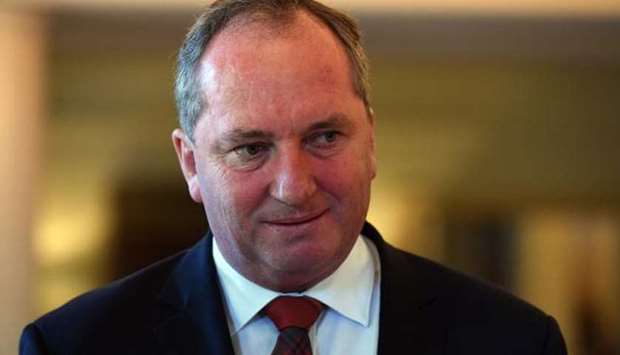Australia's conservative government stepped up efforts to cut power prices on Tuesday by proposing to block network operators from appealing regulated rates.
It also said that planned gas export curbs would be delayed until January 2018 at the earliest.
The move to limit network price hikes is the latest of several steps announced to bolster power supply and cap soaring energy prices, following a string of blackouts due to the rise of wind and solar power and shutdown of coal- and gas-fired plants.
Homes are facing power price hikes of around 18-20 percent from July 1, on top of sharp rises in electricity and gas bills over the past few years, turning energy into a hot political issue.
Australia's Deputy Prime Minister Barnaby Joyce told the coalition government on Tuesday that energy bills were the ‘No.1 issue amongst the electorate’, a person familiar with talks in the party room told Reuters.
Power transmission and distribution costs make up around half of household power bills, and to keep a lid on prices, the government is proposing barring networks, like the recently privatised Endeavour Energy, from appealing rate decisions.
Distributors in Australia's most populous state, New South Wales, last month won a court fight that could earn them close to A$3 billion ($2.3 billion) extra in revenue over five years, after the energy regulator tried to make them cut their charges.
‘By abolishing the limited merits review process, we believe that that will put downward pressure on electricity prices,’ Energy Minister Josh Frydenberg told reporters.
The government also said regulations it has proposed to curb exports of liquefied natural gas (LNG) from eastern Australia at times of tight supply would be in place from January next year at the earliest, later than the July 1 start date originally touted.
Each year around September, starting this year, a determination will be made as to whether there will be a gas shortfall the following calendar year, but the actual trigger has yet to be determined, Resources Minister Matt Canavan's spokeswoman said.
The rules are expected to apply only to east coast exporters that are not ‘net contributors’ to the domestic market.
Santos, operator of the Gladstone LNG plant in Queensland, is most at risk of having its exports curbed, as it is the only LNG producer that has been taking gas out of the domestic market to meet its export contracts.
Santos has said the proposal is unfair and could lead to higher gas prices.

